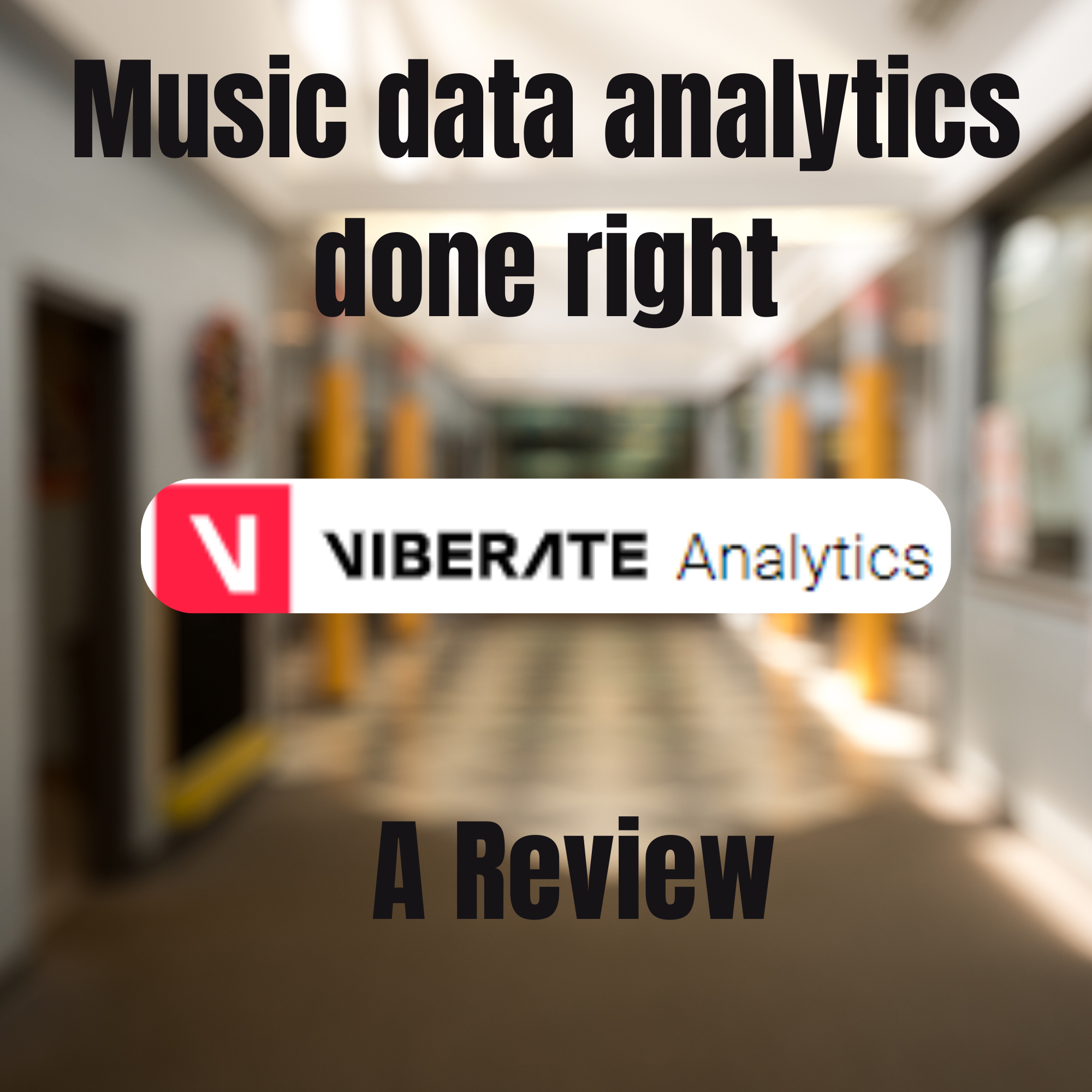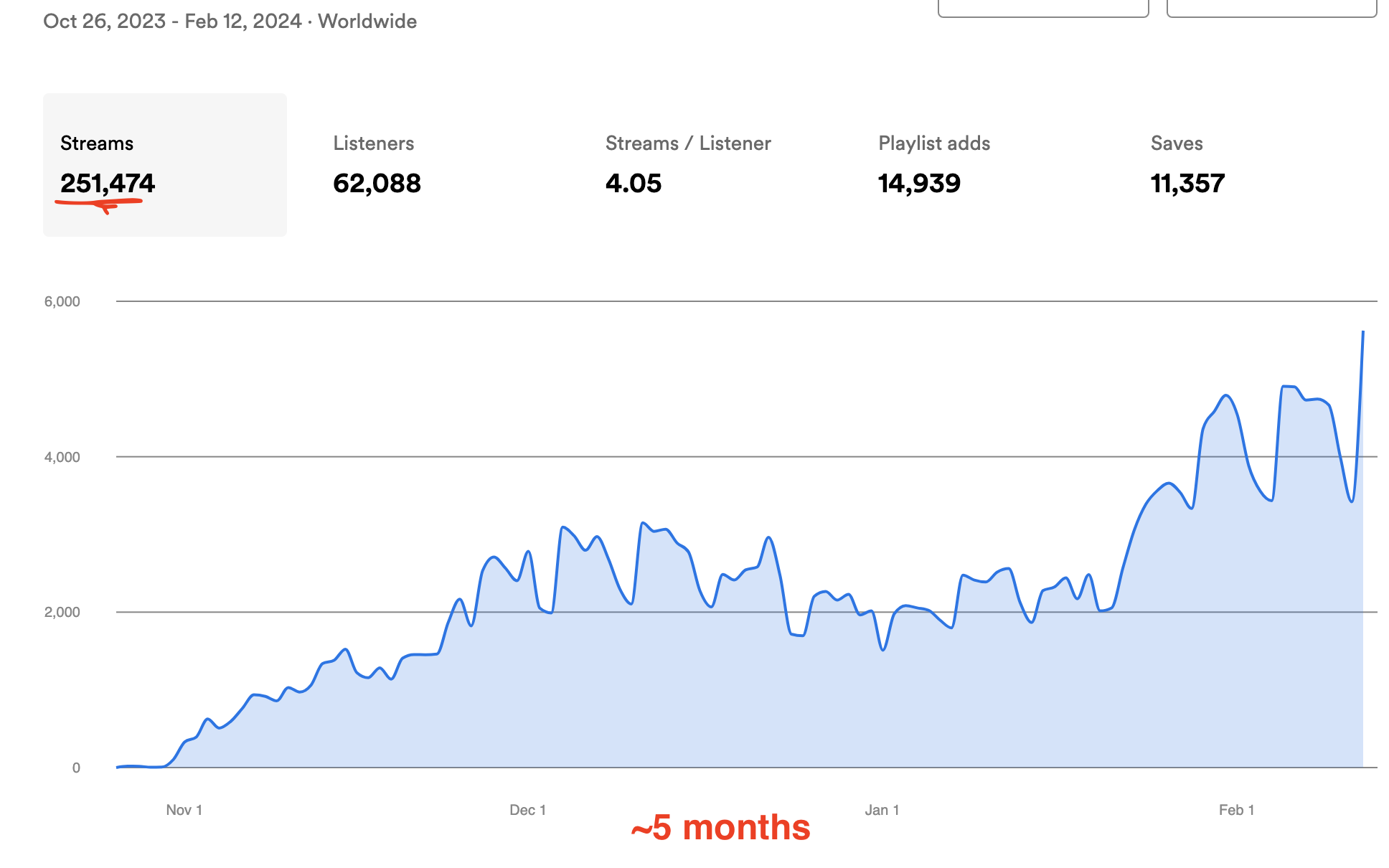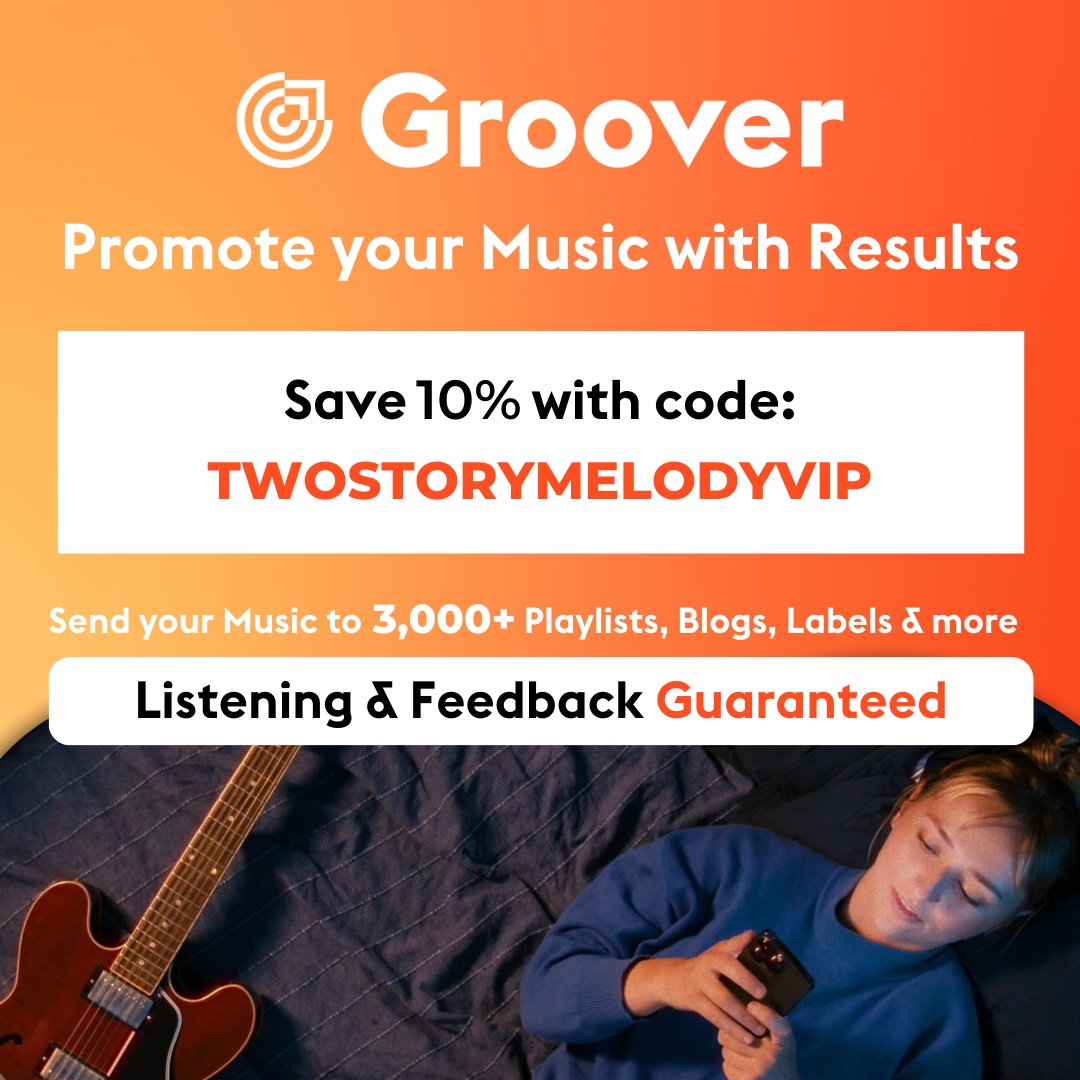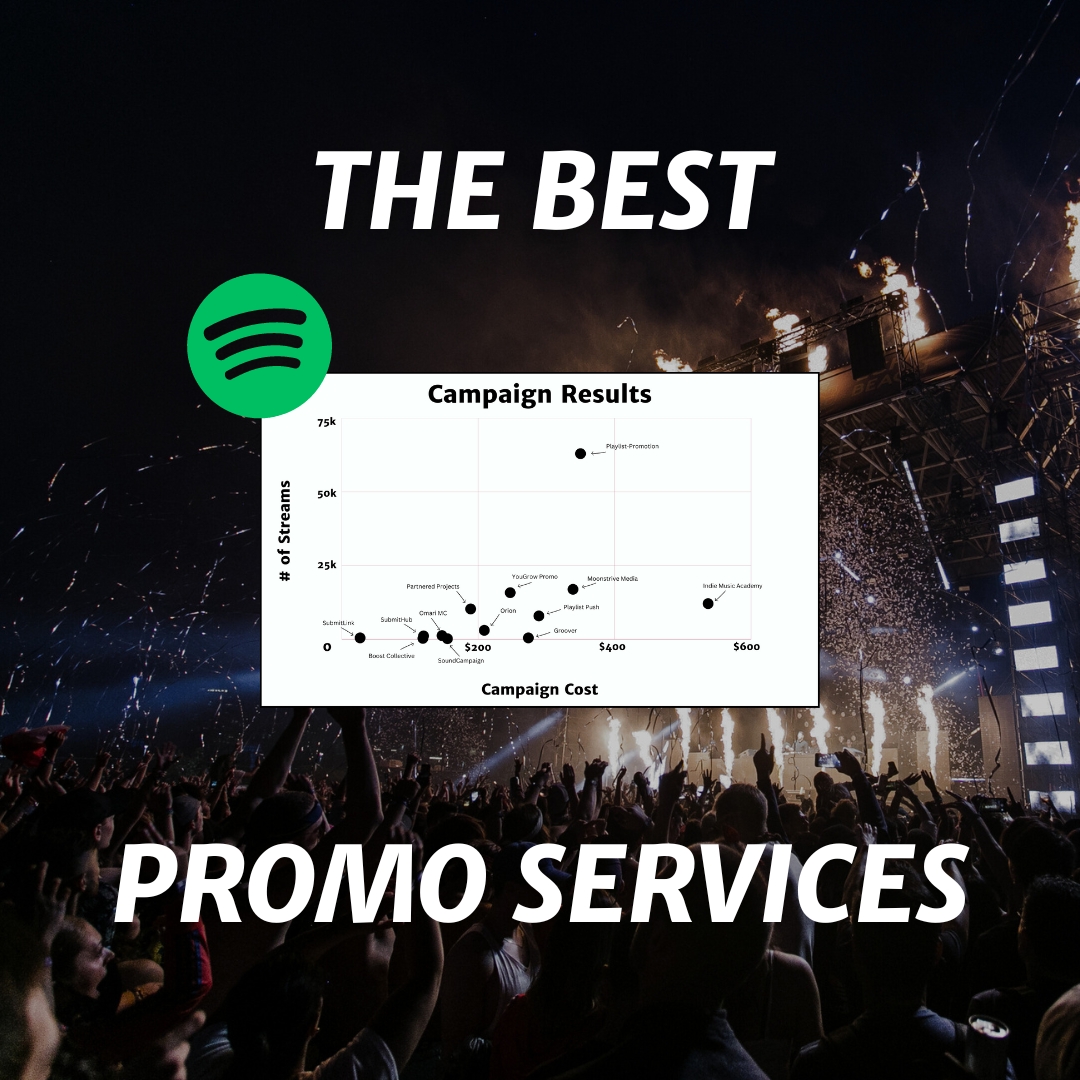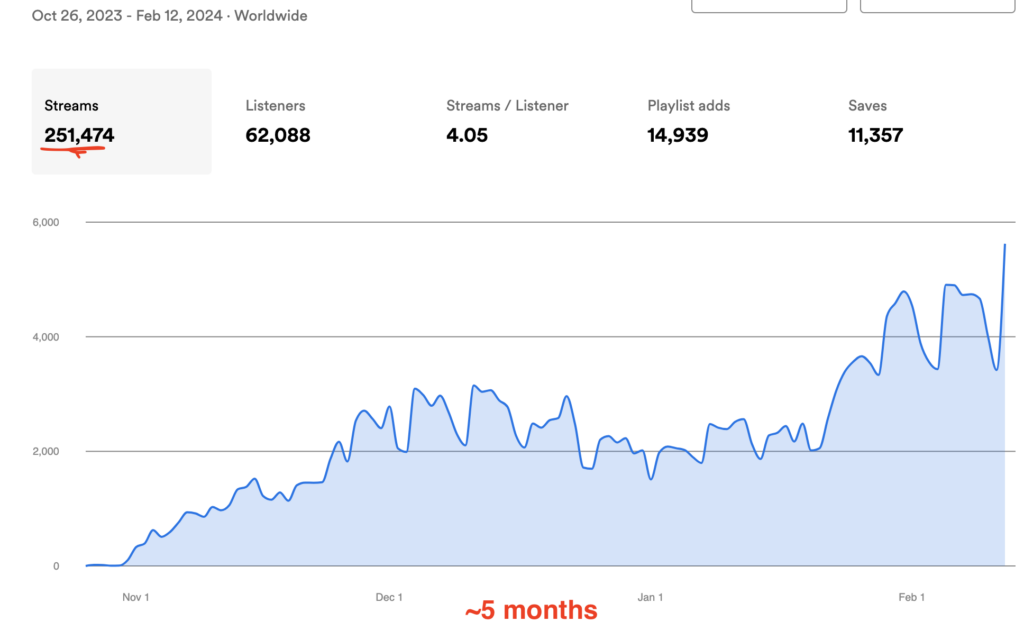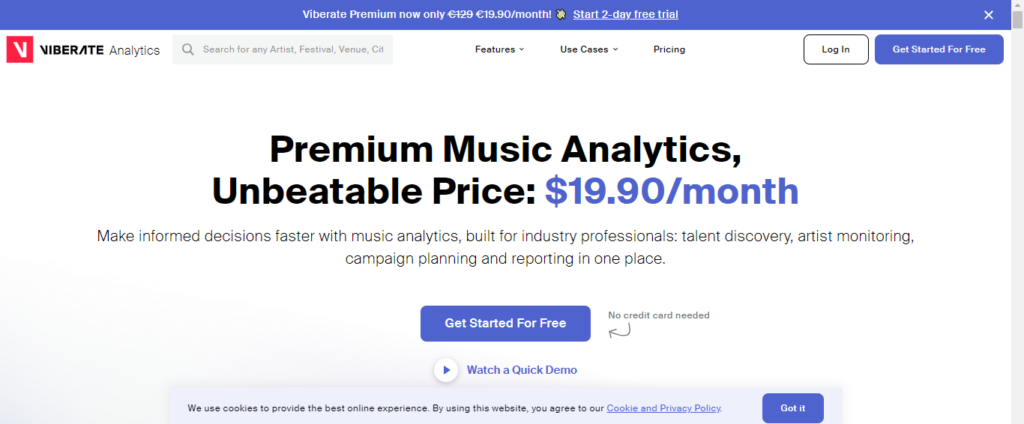
You may already be familiar with Viberate Analytics. The music data analytics platform launched back in 2015 with headquarters in Slovenia stirred up the music industry in early 2023 by slashing their premium tier to $9.99/month (now at $19.99/month) down from $129 – for a product essentially competing with the premium offer of music data mogul, Chartmetric.
Later this year, the company created even more rumors by launching Viberate for Artists, a suite of tools for indie musicians that offers distribution, promotional tools, and digital analytics at a fraction of the price these types of services usually ask for.
My first reaction when I found out about Viberate was a mix of skepticism and enthusiasm. Yes, it all sounds exhilarating, but is Viberate living up to its fame?
Let’s take a look at what it offers and if it is worthwhile in today’s competitive market.
Viberate: Overview
There are a few reasons why you should know Viberate, as the Slovenian startup has thrived to be on everyone’s radar since its inception. It was co-founded by one of Slovenia’s most recognized DJs and music producers, Uroš Umek, better known as DJ Umek, and his two managers, Matej Gregoričič and Vasja Veber.
In 2017, the company collected over $10 million in cryptocurrency during one of the most successful crowdfunding campaigns ever. The funds were invested into a newly founded platform connecting event organizers and musicians through insightful data.
Today, Viberate, with offices in London, Ljubljana, and Beverly Hills, operates as a decentralized ecosystem leveraging the power of blockchain (it’s based on Ethereum) with the objective to connect and map the entire music industry.
The platform provides services in music analytics for artists, professionals, labels, and agencies, and it also just launched an all-rounder hub for indie musicians pursuing independent careers or seeking label collaborations.
Viberate Analytics was created in 2016, promoted by the success of the website Topdeejays.com (now Mix and Groove), and Viberate for Artists was launched in 2023.
Viberate Analytics
Service:
Viberate Analytics focuses, guess what, on music analytics. It provides data and in-depth analytics for industry professionals and indie artists in the form of charts, graphs, and entity pages with insights on artists, venues, playlists, labels, and music festivals.
The artist’s profile page offers insights on the entire career across various channels, with charts illustrating data making of the career’s growth (based on raw data analysis); this includes social media performance, music performance, and network respect – based on the number of followers in the network.
You can get data on the demographics and geolocation of your fanbase, playlist placement, track performance, and more. Each artist’s page is customizable so that you can prioritize your focus areas.
A user can claim their profile on the platform to get access to complete data and compare the performance of any two artists or tracks in the extensive database of over 1M artists, 58M+ tracks, 12M+ Spotify, and 100K Apple Music playlists. Playlist insights provide an overview of your performance and help identify the right playlists to pitch your music to, indicating its reach and activity level.
A feature I haven’t seen anywhere else, Viberate includes a list of artists who often appear on the same playlists, which could be useful when looking for new collab buddies. There is no botted playlist notification, and I don’t see any info on playlist curators’ contact details, so if you want to identify curators to pitch to, there might be better tools to do that (e.g., artist.tools).
Viberate Analytics features a number of data sources:
- Spotify
- Apple Music
- YouTube
- SoundCloud
- TikTok
- Radio Airplay (over 24K radio stations across 150 countries)
- Shazam
- Beatport
- Deezer
It also monitors live events and festival data through ticket providers and concert discovery services (e.g., Bandsintown).
Depending on the source, data is updated at intervals that vary from a day to a few weeks periods. Data comparisons and charts can be exported in CVS and PDF reports.
Price:
We’ve seen the price of the service fluctuating quite dramatically over the years, starting from $129, which, for what it offers, was more in line with the price of these level data analytics services such as Chartmetrics or Soundcharts, going down to $9.99/month in early 2023, to eventually land at $19.99/month.
Vasja Veber told Music Business Worldwide:
“We want to offer access to premium analytics to a wider audience, not just big companies that can afford to pay $129 per month. Also, as I mentioned that there are only a handful of such services on the market, so we don’t want to have users switch from their current service to Viberate. Instead, we want to enable them to start using Viberate on top of what they are already using.”
Currently, Viberate Analytics offers three subscription plans:
- Lite – a free plan that includes a custom profile and access to limited overview, growth and playlist updates, top 100 chart picks, and basic festivals, labels, venues, and events info.
- Premium – $19.99/month (billed annually at $239), which gives complete access to the analytics. It comes with a seven-day trial.
- Enterprise plan – custom plan with API access.
Viberate Analytics: Pros and Cons:
Pros:
- Access to complete analytics on one payment plan.
- Competitive price for the amount of data it includes.
- Seven-day trial on the premium plan.
- The free plan comes with a decent range of basic analytics, including playlists, festivals, and live events insights.
- Artists’ and tracks’ benchmarking tool.
- Live events and festivals insights and charts.
- Viberate artists’s chart.
- You can claim your artist profile on the free plan.
Cons:
- Playlist data doesn’t include contact information and bot detection.
Viberate for Artists
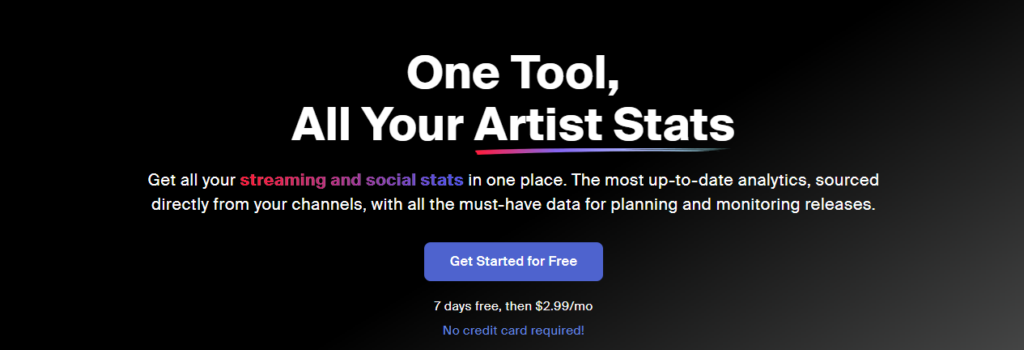
Service:
The newly launched platform provides distribution to all major streaming platforms, promotional and booking tools, playlists, festival pitching, a free one-pager, and analytics covering streaming and social channels.
Viberate offers funding for independent musicians via the new hub through advances of up to $1 million on future streaming royalties.
Distribution
I’m honestly ecstatic about their distribution service; you get access to unlimited music distribution service on all (34) major digital platforms (including Chinese platforms like Netease and Tencent) with a royalties split option and no commission, plus you get pre-save and share links to use for promo and access to your dashboard with fanbase stats.
It doesn’t say how long it takes to release a song on the platforms, but in the FAQ at the bottom of the page, I read they recommend submitting your tracks a couple of weeks before the desired release date, so I think it’s safe to assume it’s up to two weeks.
All your collaborators can log in to the platform for free to withdraw their earnings (through an automatic invite link), and payments are made through Wise or PayPal.
While there are cheaper or even free distribution services (DistroKid unlimited distribution is just $19.99/year), considering everything else included in the package, I still think it’s a deal worth considering.
Playlist Pitching
Viberate creates playlist ranks (out of 12M+ Spotify playlists) based on recent growth or total followers number; you can filter the results by genre, subgenre, popularity, type, and release date of featured tracks to select the playlists that you want to pitch your tracks to.
You can also filter out playlists with direct curator contacts and contact them through the platform’s filled-out form. If there are no direct contact details for a curator, it will show links to their social media platforms.
Another way to pitch playlists is by checking out pages of artists similar to you and identifying the playlists they are on, finding them on the charts, and then reaching out to the curators this way. A similar service is offered by artist.tools, which also filters out botted and “crap” playlists.
You get ten playlist pitches/ month on the premium plan.
Advancing Service
Ok, should you get excited about it? I’m torn; up to $1M in funding sounds incredible or hardly realistic. Anyway, let’s look into the details.
How does it work then?
To qualify for the service, your song must be at least one year old and have 100,000 streams in the last 12 months. After being accepted (each submission is assessed individually), you get the agreed advance in your bank account to use as you please. Go on a surfing holiday in Brazil or buy this summer house you have been thinking about for a while. Still, seriously, you decide how to use this money to boost your career.
The advancing offer is recoupable, which means that Viberate will collect the money from streaming the selected songs until they cover their costs. You still get to keep all the earnings from merchandise, sync, physical sales, and gigs. Considering that for every 100,000 streams, Spotify will pay you around $600, it could take a while to get a similar sum from streaming.
An advance is a form of funding generally offered by record labels to musicians who have signed with them, and I’ve rarely seen it offered to independent musicians (a quick web search showed BeatBread, which offers a similar service).
The Viberate website doesn’t mention any additional fees or percentages they collect on top of the repayment.
One-pager
As a free user, you get your own one-page website on the platform, where you can feature your top-performing track, see your stats and fanbase breakdown, and if you connect your Spotify for Artists profile and other channels, your page will be updated automatically.
The website claims that you can also use it as a booking page (essentially a form of EPK), where booking agencies or labels will be able to reach out to you. Although having a free profile may sound useful, a web page per se will not generate engagement or fill up your mailbox with booking requests.
I have some doubts if a new platform, no matter how many contacts they have in the industry, would quickly become a main destination for A&R professionals, competing with Spotify and TikTok.
While Vibrate claims the profiles are created by the community members and manually verified, resulting in a clean dataset, I came across some comments from artists stating they’ve only been contacted after having their profile created on the platform and that the Viberate team argued against removing the page from their database. Creating artists’ profiles using publicly available information is no biggie in itself, but whether having one will prove to be helpful for the artists out there, we shall see.
Festival Pitching
Viberate’s co-founders emphasize their desire to connect fans, artists, venues, and event organizers on many levels; one of their ambitions is to create a ticketing agency and allow users to buy tickets to live events in cryptocurrencies. Currently, the platform offers tools to pitch to popular music festivals. The festivals’ chart includes 6K+ events worldwide, which you can filter out to shortlist the ones that fit your requirements and contact them through a direct form. To increase your chances of being accepted, you can include a breakdown of your fanbase in the selected location and check out similar artists in your genre to see where they’re performing.
Analytics for Artists
Viberate for Artists also includes an analytics part, and while (obviously) it’s not as detailed as Viberate Analytics, it provides an overview of the performance of each artist in the database, including social media and streaming platform data. On the Lite (free) plan, you can access your own analytics across all platforms, as well as cross-channel data.
On the Premium plan, you will also benefit from the fanbase and detailed track analytics. It’s worth noting that the Premium plan includes a benchmarking tool, which allows you to track how you perform compared with 1M+ other artists; a similar feature on Chartmetric will knock you back at $140/month.
Viberate for Artists: Pros and Cons
Pros:
- All-rounder offers a range of services that essentially can provide holistic support to an indie artist.
- Free plan.
- Competitive price.
- Access to detailed analytics and benchmarking tools.
- Playlist and festival pitching through the platform.
- Advancing for indie artists’ allows you to get cash to develop your career without a label’s deal.
Cons:
- A new platform on the market might not be as effective in helping artists be discovered as they claim.
Viberate Customer Support
Viberate provides customer support via email and web form. Viberate Blog and YouTube channel, with 1.5K subscribers, feature tutorials and instructional articles and videos on how to use the platform most effectively.
Final Notes
It seems to me that the company is trying to put its two cents into every aspect of the music industry: an analytics platform, distribution service, booking agency, and the place to be for any A&R professional, label or festival organizer.
While you might be able to find better solutions for each of these areas, having all services concentrated on one platform, with one payment plan and support to assist with any issues, can save you a lot of hassle.
I admit it all sounds promising, and for a number of reasons, I would want to see Viberate for Artists prosper: introducing streaming and social platforms was a step forward, changing the dynamic between the players, and Web3 solutions are the next step.
By offering decentralized solutions and eliminating middle-man, projects like Viberate can further empower artists by giving them greater control over their work and a larger share of their money, ultimately creating a more transparent and secure ecosystem.

